const int sizea = 600;
char sz[sizea];
above code works fine. But below code segment cause errors. I'm working on visual studio 2005 - MFC application
CString strFinal;
.......//strFinal value is dynamically changing . .
const int size = strFinal.GetLength();
char sz[size];
Error 2 error C2057: expected constant expression
Error 5 error C2070: 'char []': illegal sizeof operand
Error 4 error C2133: 'sz' : unknown size Error 3 error C2466: cannot allocate an array of constant size 0
